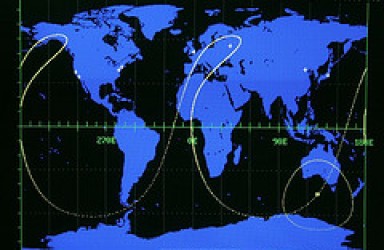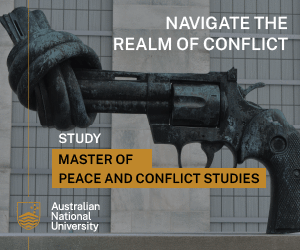Is cosmopolitain democracy desirable and feasible?
Politically, the EU is far off from being a cosmopolitan polity. This comes down to the fact that political participation does not cross borders. State sovereignty still plays a crucial part in the make up of the EU. Yet, there is a fundamental issue here. Increased democratic functions would need to occur before ever the mildest of David Held’s proposals could become reality.
The Reality of US-UN Relations
Great powers rarely make great multilateralists. The United Nations owes a lot of what it is today to the United States. It was the US that breathed life into the UN with its power and resources. Despite being one of the biggest advocates for the UN, why has the US been ambivalent towards it?
New Terror or Old News?
The application of sudden non-state actor violence to achieve political goals can be traced far back in history, but terrorism as a transnational and organized activity was first witnessed in Europe by the end of the 19th century. A long-term process of change usually precedes terrorism. Thus terrorism does not occur in stable times or systems, and its effectiveness is dependent on the instability of the framework or society it is practiced in.
US Missile Defence and Space Security: a Security Dilemma for China?
The Chinese reaction to U.S. BMD and space security policy has emphasized the crucial importance of dialogue and economic engagement. Conscious of history’s rising powers being profoundly threatening and violent, China has been keen to stress its ‘peaceful rise’ as a ‘responsible great power.’
Trade Liberalization and Environmental Protection
The debate between free traders and environmentalists has led to the introduction of numerous innovations to the environmental provisions of the multilateral trading system. It has further led to the development of the concept of sustainable development, which aims to forge a balance between economic development and environmental protection.
How far has the Palestinian ‘right of return’ been the main obstacle to the peace process since 1993?
Drenched in controversy, very few topics inspire such heated historical debate as to why the Palestinian people find themselves displaced and in a state of constant limbo. A failure to address the right of return has provided some groups with a motive to derail the peace plan at all costs.
What role does religion play in Hamas’ political behaviour?
This essay argues that religion plays a crucial role in Hamas’ political behaviour. Hamas established its identity around Islam when the organisation was being created and today it places Islam in the centre of its political actions. Yet Hamas remains a political organisation at a relatively high level of development, and it uses selected religious elements depending on what it deems profitable in any given political situation.
EU-ACP Trade Relations, Environmental Protection and Sustainable Development
The countries of the Caribbean have benefited from a series of preferential trade agreements with the EU. This paper will examine EU trade relations with its former colonies, from the policy of Association to the Cotonou Agreement.
North-South relations and the promises of constructivism
This essay outlines some of the major constructivist promises and attempts to deduce their direct implications for North-South relations. It concludes that expansion of security communities represents the foundation of the constructivist promise in this area of study.
Cultural awareness and counterinsurgency in Afghanistan
The current campaign in Afghanistan has lasted for over nine years and the Taliban has grown into a formidable insurgency. This paper explains why a lack of cultural awareness condemns counterinsurgency operations to almost certain defeat, and explores the implications for the campaign in Afghanistan.














